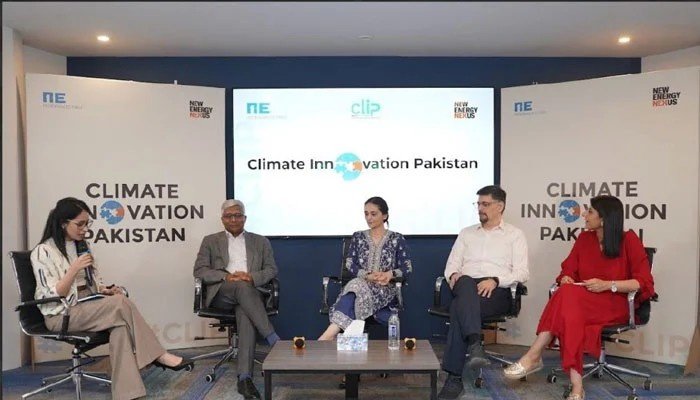In response to the growing climate crisis, Renewables First, a think tank for energy and environment in Pakistan, has teamed up with New Energy Nexus, a global network supporting clean energy entrepreneurs, to launch Climate Innovation Pakistan (CLIP). This national platform aims to fast-track the development of homegrown climate tech solutions in Pakistan.
Despite contributing less than 0.9% to global greenhouse gas emissions, Pakistan is one of the most vulnerable countries to climate change. The launch event, held at the National Incubation Centre, marked a key step in addressing this challenge through technology-driven innovation.
CLIP introduces two core components: a climate tech incubator from Renewables First, offering a tailored curriculum for early-stage climate ventures, and the New Energy Academy from New Energy Nexus, which will upskill Pakistan’s solar industry workforce.
Muhammad Bilal Abbasi, General Manager of Ignite Funds, praised the initiative, noting that CLIP will not only enhance the ecosystem but also strengthen Pakistan’s economy. He confirmed that Ignite’s incubator will complement the efforts of CLIP.
Stanley Ng, Global Partnerships Director at New Energy Nexus, highlighted the organization’s experience in South Asia and explained the role of the New Energy Academy in supporting the solar workforce. Aafaq Ali, Vice Chairman of the Pakistan Solar Association, endorsed the initiative, emphasizing the need for improved solar installation quality across the country.
Ahtasam Ahmad of Renewables First presented his white paper, “Pakistan’s Climate Tech Opportunity,” identifying both challenges and untapped potential within the country’s startup ecosystem, along with a roadmap for scaling the sector.
The event featured a panel discussion titled “The Role of Ecosystem Support Organisations (ESOs) in Building an Investable Climate Tech Pipeline.” Panelists agreed that impact investment is the key to advancing climate tech innovation in Pakistan. However, they also stressed the need for stronger collaboration between public and private sectors, better alignment between academia and industry, and more tailored support for early-stage startups.
The discussion underscored the importance of specialized incubation programs and capacity-building curricula, backed by a blend of global and local experts and experienced founders, to foster innovation in Pakistan’s climate tech sector.















